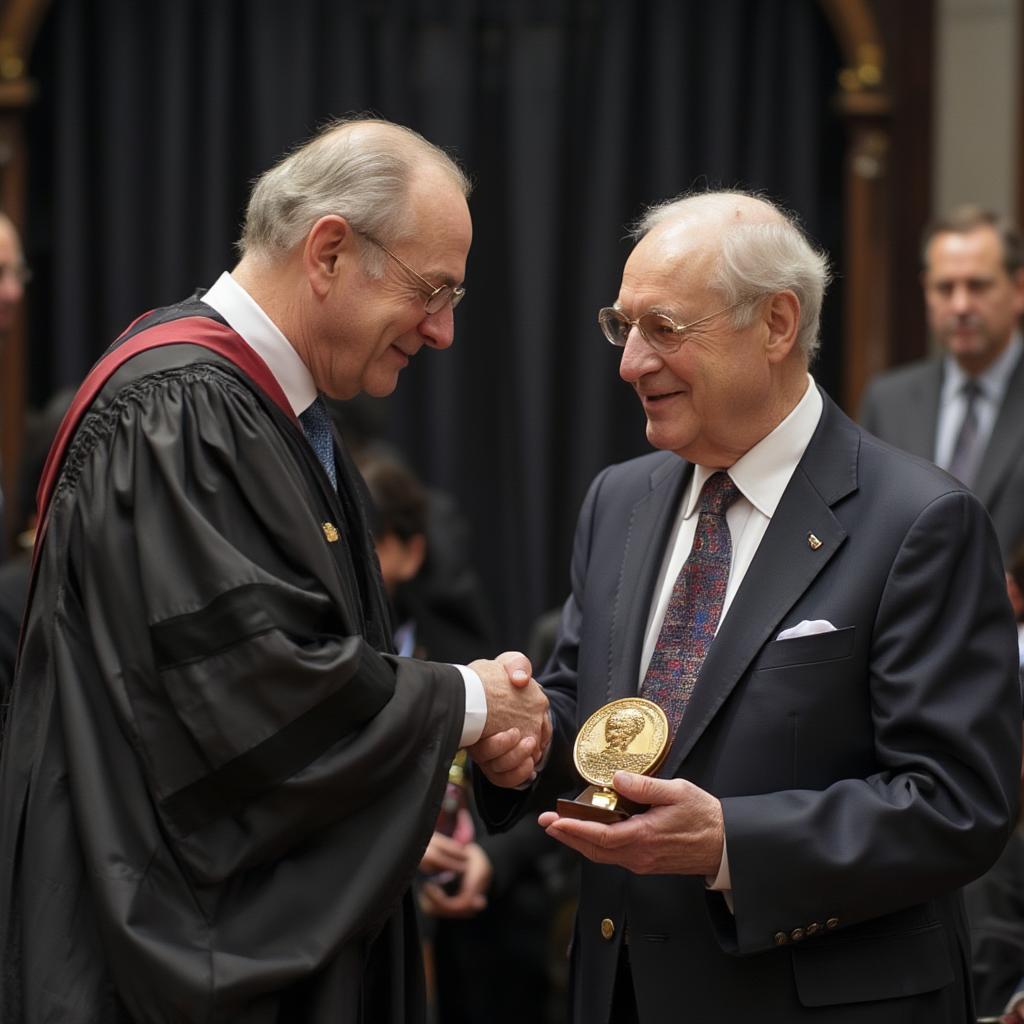Harry Markowitz, a name synonymous with modern portfolio theory (MPT), revolutionized the world of finance. His groundbreaking work on diversification and risk management earned him the 1990 Nobel Prize in Economic Sciences, solidifying his place as a titan of financial thought. This article delves into the life and achievements of this remarkable figure, exploring his contributions to investment strategy and their lasting impact on global markets.
Born in 1927 in Chicago, Illinois, Markowitz showed an early aptitude for mathematics and economics. He pursued these interests at the University of Chicago, earning his bachelor’s degree in economics in 1947, followed by a master’s in 1950. It was during his doctoral studies at the University of Chicago that he began to formulate the ideas that would become the foundation of modern portfolio theory.
Markowitz’s seminal work, “Portfolio Selection,” published in the Journal of Finance in 1952, introduced the concept of efficient frontier. This concept challenged conventional wisdom by emphasizing the importance of diversification, not just in selecting individual securities, but in constructing a portfolio that balances risk and return. He argued that investors should not simply focus on maximizing the expected return of each asset, but rather consider the correlation between assets and their combined impact on overall portfolio risk.
His work provided a mathematical framework for optimizing portfolio construction, demonstrating how investors could achieve the highest possible return for a given level of risk, or minimize risk for a desired return. This groundbreaking insight transformed investment management, providing a scientific basis for portfolio construction that had previously been lacking.
Before Markowitz, investment decisions were often made based on subjective judgments and gut feelings. His work introduced a quantitative approach, enabling investors to make more informed and rational choices. He developed algorithms and computational methods that allowed for practical application of his theories, paving the way for the development of sophisticated portfolio optimization software.
His contributions extended beyond portfolio theory. He also made significant advancements in the field of simulation, developing the SIMSCRIPT programming language, a tool widely used for modeling complex systems. This further cemented his reputation as a pioneer in applying quantitative methods to solve real-world problems.
Markowitz’s influence on financial markets is undeniable. His work laid the groundwork for the development of index funds, exchange-traded funds (ETFs), and other innovative investment products. His theories are now taught in business schools around the world and are considered essential knowledge for anyone working in finance.
 Markowitz Receiving the Nobel Prize in Economics
Markowitz Receiving the Nobel Prize in Economics
His legacy continues to shape the investment landscape. The principles of diversification and risk management he championed remain central to modern portfolio management. His work has empowered investors to make more informed decisions, contributing to more efficient and stable financial markets. Harry Markowitz’s contributions have not only earned him global recognition but have fundamentally changed the way we think about investing.


